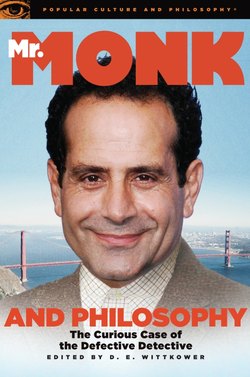Описание книги
Mr. Monk and Philosophy is a carefully and neatly organized collection of eighteen chapters divided into exactly six groups of precisely three chapters each. Drawing on a wide range of philosophers—from Aristotle and Diogenes, to Siddhartha Gautama and St. Thomas Aquinas, to David Hume and Karl Popper—the authors ask how Adrian Monk solves his cases, why he is the way he is, how he thinks, and what we can learn from him. Some of the authors suggest Monk is a kind of tragic hero, whose flaws help us live out and expunge the fear and anxiety we all experience; that he is more than just his personality or memories, but something more individual and indefinable; and that his most distinctive traits are not the traits that make him a detective, but those that make him a friend. His most notable trait is the dedication he shows to his late wife, Trudy.Other authors explore how Monk encounters the world, arguing that his genius comes not from logic or reasoning, but from his ability to see his surroundings in a pre-conceptualized way; that there isn’t as much distance between his rational beliefs about crimes and evidence and his irrational phobic beliefs as there might seem; and that his phobias have themselves made him approach himself and the world as something to be overcome.Just how does Mr. Monk come to his conclusions? Does he use inductive, deductive, or abductive reasoning? Is he dependent on a false notion of the law of noncontradiction? Is it possible that his reasoning might have more to do with constructing harmonious stories than it does with evidence, causes, or insights?Some contributors ponder Monk's name and what it means given his views on religion. Some authors argue that Mr. Monk's approach to the world is fundamentally similar to that of medieval monastic orders; that his rituals and deductive ‘dancing’ show how he exhibits a kind of shamanism; and that he acts in accordance with the Bodhisattva ideal, bringing others to enlightenment through circumstances and by accident, even though he has no such intention or goal.In one chapter, the author asks how the character Monk is related to other similar characters, arguing that Monk and House are closely related characters, each based on the conflict between reason and emotion which exemplifies the motif of the “troubled genius;” that Monk and House both pursue ethical practices and goals even as they fail at the everyday face-to-face ethics of normal social interactions; and that great detectives all, through their flaws, help us to understand and forgive ourselves for our flaws.And finally, there are several chapters in which the authors consider Monk from the psychologist’s perspective, discussing how Monk’s relationship with Trudy, while having unhealthy codependent elements, demonstrates some important aspects of successful romantic partnerships; how laughter plays a difficult role in mental illness, and the difficult position that the show and therapists are placed in when having to treat seriously disorders that are both tragic and comic; and how, from a psychoanalytic perspective, Monk’s inability to mourn shows us why we both reject and are drawn towards death.In the words of author D. E. Wittkower, «In order to be sure that the reader is able to enjoy the book, every chapter will have an even number of words. You’ll thank me later.»
